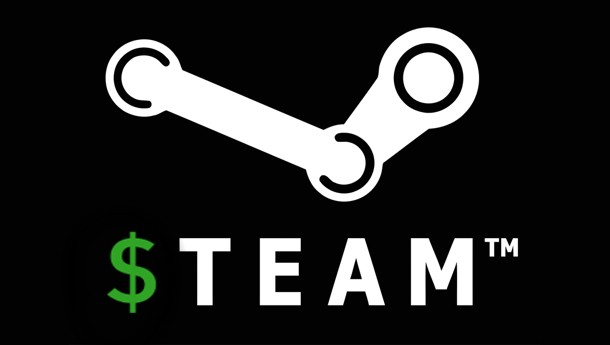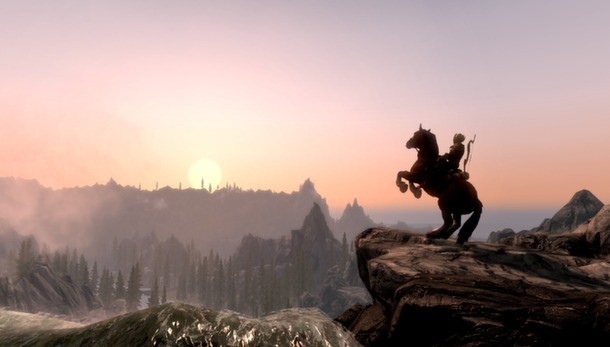The Fallacy Of Free Mods - Paying Creators, Developers, And Valve Is The Right Move (And May Return)

The past two weeks have been tumultuous for PC gamers, as Valve announced (and quickly terminated) a mechanism that allowed modders to charge for their work. While the dust has mostly settled, there are important lessons from the aborted attempt and how we might better discuss this issue in the future.
A Cottage Industry Built And Dismantled
On April 23, Valve announced that Bethesda’s Skyrim would be the first title to allow mod creators to charge for their work. Revenue was set to be split: 30 percent going to Valve, 45 percent to Bethesda, and 25 percent to the mod creator.
This wasn’t Valve’s first foray into community compensation. The Steam Workshop has allowed users to monetize creations used in Dota 2, Team Fortress 2, and other games. It was recently opened to allow third-party developers to implement this type of economy, which sounds appealing across the board since Valve has paid out $57 million to cosmetics creators since 2011. While mods are most certainly more complex and impactful than cosmetics, the core of a community-based economy exists and thrives on Steam.
However, this latest expansion of the Steam Workshop economy was met with enormous resistance. The outcry from gamers was intense, with a variety of issues deemed problematic. The very nature of charging for mods was found objectionable by some. Others took issue with Valve and Bethesda receiving any portion of the revenue. Some identified concerns with theft and repurposing of assets without permission.
The implementation was clumsy and the communication from Valve up until the program was terminated was lighter than it should have been. On April 25, Valve founder Gabe Newell took to Reddit to address questions from the community.
On April 27, Valve and Bethesda pulled the plug, refunded all purchases, and took the idea back to the drawing board. "We've done this because it's clear we didn't understand exactly what we were doing,” Valve’s Aiden Kroll wrote. “We've been shipping many features over the years aimed at allowing community creators to receive a share of the rewards, and in the past, they've been received well. It's obvious now that this case is different."
Don’t assume that this is the end of paid mods, though. Kroll hints that the concept might come back with refinement.
"We understand our own game's communities pretty well, but stepping into an established, years old modding community in Skyrim was probably not the right place to start iterating,” he writes. “We think this made us miss the mark pretty badly, even though we believe there's a useful feature somewhere here."

Pictured: Beyond Skyrim Mod
What's Free For You Has Cost For Others
One of the most common refrains during the brief “paid mod” period was, “These used to be free. Why should we have to pay for them now?”
End-users have benefitted from mods for ages, often without recognizing the effort of those endeavors monetarily. No doubt, applying a charge to even a sub-set of items that were once considered available for the taking is a jarring change. But for those on the creation side, this work was never “free.”
Individual creators and mod teams (like those working on the massive Skywind conversion project) have been toiling for countless hours without compensation. While these are absolutely labors of love, they aren’t “free.”
“Time is money,” as they say. In this case, those working on these mods are incurring what’s known as “opportunity cost.” The time spent working on these projects is time that can’t be spent on other endeavors, including those that have revenue potential.
There may also be direct expenses related to working on these projects. The cost of upgrading PCs (some fraction of which could be legitimately applied to this work), software for animation and graphics editing, and other purchases inspired by or solely related to mod creation are out-of-pocket expenses.
While no one was asking end-users to pay for these before, to call these mods “free” neglects the time, effort, and direct cost of creation. Whether gamers feel that mods are worth paying for doesn’t factor in here. That’s something the market will correct for as the paid mod economy matures (if it ever returns).
There are concerns about paid mods that should be discussed, though. Starting with Skyrim, a completed game makes things easier. But what happens when paid mods come to games that are still evolving through DLC, patches, and title updates?

Pictured: Falskaar Mod
The Modder’s Responsibility
Paid mods are a double-edged sword for creators that choose to take advantage of the opportunity. On one hand, you’re certainly earning some revenue for your work. On the other, you’re creating a contract with buyers, and it is a reasonable expectation that you will maintain your work as software is updated.
In Valve’s original FAQ for the system, the company suggests the following if things go wrong:
Sometimes one mod may modify the same files as another mod, or a particular combination of mods may cause unexpected outcomes. If you find that mod has broken or is behaving unexpectedly, it is best to post politely on the Workshop item's page and let the mod author know the details of what you are seeing.
Another issue is ownership. The mod community iterates, and many creators use assets borrowed from other users. Valve has a mechanism set up so that sellers can allocate part of their revenue to those whose work is incorporated in a paid mod.
The issue is that there isn’t a convenient way to seek permission (or grant it). Also, as with other intellectual property theft on the internet, disputing improperly “borrowed” assets involves the originator first learning of the situation and then pursuing a Digital Millennium Copyright Act (DMCA) takedown.
Valve appears to have been planning on being hands-off on this process. There’s also an issue of assets that originate in other copyrighted works, including full games. Creators of paid mods could easily run afoul of developers and publishers who have opted not to participate in this program at all.
If Valve decides to relaunch this program, a mechanism to protect intellectual property holders beyond just advising a DMCA takedown should be in place. Valve is taking a piece of all sales, covering hosting, distribution, and payment processing. Vendor services for modders should be part of that.
Valve And Bethesda: Partners Deserving Of Compensation
One of the other things frequently heard about the paid mod situation is that the split among creators, Bethesda, and Valve wasn’t fair. While there is certainly room to discuss the split percentages, I believe that the fact of a three-way apportioning is completely legitimate.
Valve is responsible for the hosting costs related to the mods. The company also handles distribution, customer service (including refunds, which are guaranteed in the first 24 hours), payment charges for credit card purchases, overseeing disbursements to creators that reached the $100 minimum, and other related expenses of maintaining the Steam storefront.
As for Bethesda, consider the portion of funds awarded to the developer as a form of residuals (money paid to actors for subsequent screenings of their work). The whole paid mod structure exists upon the foundation of Bethesda’s original game.
It is completely reasonable for an intellectual property holder to ask for a portion of revenue earned by products reliant on its core product. “The percentage conversation is about assigning value in a business relationship,” Bethesda wrote on April 27 shortly before the program was terminated. “How do we value an open IP license? The active player base and built-in audience? The extra years making the game open and developing tools? The original game that gets modded? Even now, at 25% and early sales data, we're looking at some modders making more money than the studio members whose content is being edited.”
Further, Bethesda recently held a Skyrim free weekend on Steam. During that time, mod sales represented less than 1 percent of the publisher’s Steam revenue. This doesn’t take into account non-Steam PC sales and console offerings.
The developer revenue portion becomes even more important should paid mod support be released for games that aren’t completely finished. Since developers choose whether to enable paid mod support for their titles, the implication is that there is intent to make the ecosystem viable. This means enhanced community engagement and updates that would ideally pave the way for easier mod implementation and improvements focused on integration.
Developers should also be realistic that paid mods are going to likely be relatively small (as evidenced by Bethesda’s anecdote above). For those that plan to implement during ongoing updates, this will serve as a minor offset rather than a river of cash.
The Future Of Paid PC Mods
Whether Valve and partners decide to give this another go with the lessons of this failed attempt, is something we’ll have to wait and see. If the system does come back though, a game like Skyrim is the perfect testing ground.
It already has a robust community and dedicated fan base (though Bethesda says only 8 percent of players have ever used a mod and about 1 percent have made one). The game isn’t getting major updates anymore. This is the kind of testing environment a practice like this requires, because you don’t want these things being worked out on a newer, frequently updated title.
There’s certainly many kinks to be worked out. The legal issues regarding asset use, the “right” revenue split, and education about what goes into creating a mod (and why there is more at play than just the work on the community-built add-on) are all necessary before the economy is reintroduced.
Paid mods might have died a fiery death the first time out. Expect that those involved will take those lessons to heart if the concept ever re-emerges.

Get the Game Informer Print Edition!
Explore your favorite games in premium print format, delivered to your door.
- 10 issues per year
- Only $4.80 per issue
- Full digital magazine archive access
- Since 1991









